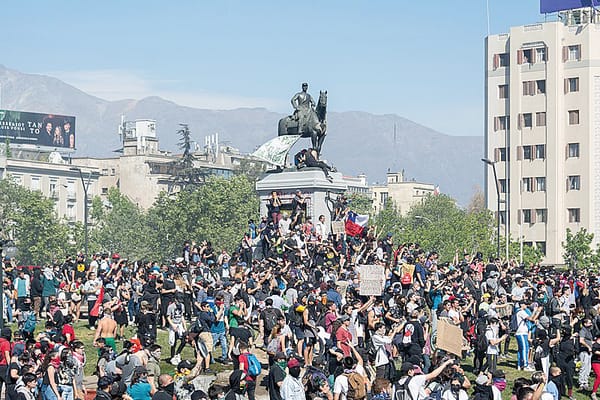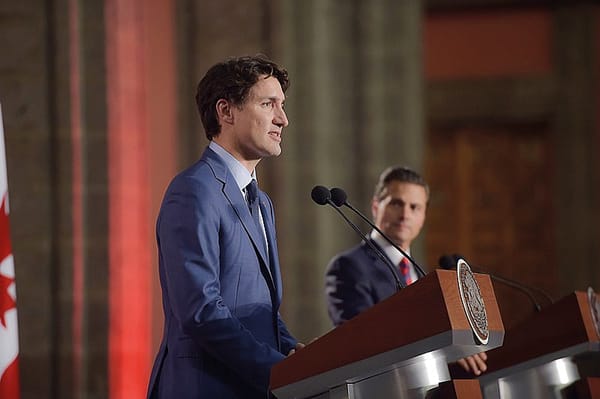EUphoria and the EU’s Role in the People’s Vote
How the lack of a ‘left-wing’ Brexit has allowed the EU to become the party of the people

Brexit has been the main object of political attention for the past year, dividing UK’s population in half: pro-Brexit and pro-EU. The latter is interclass, constituted by voters mainly ranging from centre to left from all ages. In 2018, a pro-EU campaign group aiming to hold another referendum was formed, People’s Vote, and with it subsequent marches of masses in London throughout the past year.
Among the supporters of the People’s Vote group are Liberal Democrats, some conservative MPs, and companies like Superdry that do not want to renounce to the EU market. Although supported by them, People`s Vote represents the more humble sector of the pro-EU movement, usually referred to as “the people” in political discourse. This has morphed the pro-EU faction into a popular mass movement fighting for immigration, social progress, and job security amongst other issues, professing a feeling of love and faith in the EU being the solution to these issues: “EUphoria”. But how is this pro-EU attitude related to the motivations behind People’s Vote?
Brexit per se refers to the action of the UK leaving the EU, and thus originally was a politically blank term that allowed for interpretation of any political and economic flavour. Brexit, as seen today, however, is a political process associated with the right wing of the political spectrum. With a Conservative government, Brexit has become a materialisation of a xenophobic and materialist mindset of “the EU is stealing from us”, which is just one of the two sides of the separatist movement coin (we will consider the other side later). This conservative agenda of Brexit negatively implicates the lower and middle classes of society, including immigrants, which is what motivated a reactionary progressive attitude against Brexit.
However, the EU is one of the least democratic organisms in Europe, neoliberal and historically in favour of austerity measures. The main fears of Brexit are rooted in how the EU has monopolized certain rights to itself: travelling, working abroad, trade... it uses these rights as bargaining tools to attract outer states and keep its members in. The EU has previously put these methods in practice, the prime example being the billions worth in cuts imposed to Greece in exchange for loans to solve the very crisis that EU’s liberal market induced. This same bargaining attitude was taken when UK decided to leave the EU, enforcing stricter and stricter requirements on the conditions of a deal as time passes. So, why have these measures not awakened an anti-EU movement in the lower classes that conform the People’s Vote?
The other side of the separatist coin is that of “the people’s”: wanting economic independence to secure jobs and support for lower sectors and social progress. In other European countries, this sentiment is often represented by leftist euro-skeptic parties like Syriza in Greece (before accepting the EU’s loans) and Podemos in Spain. These parties tend to be populist (meaning they focus their political discourse on “the people”, or the working class, and often pit them against “the elite”, such as the EU as a political institution) and are often born out of mass movements in times of crisis, whether political, social or economic. This origin in the masses gives the party enough knowledge about their motivations to articulate a coherent framework for them: an ideology. Once the group accepts this ideology, the movement goes from having a passive role reacting against opposing conditions to being able to actively assess them from their ideological ground and loses its spontaneous character due to their organized representation as a party.
In the case of the UK, the political conditions of Brexit resulted in such a popular movement: the People`s Vote. With no political force similar to the ones discussed above, members of what now is the People´s vote only had Labour as a last resort. But Labour’s indecisive support for the left-wing case for Brexit and their intrinsic centre-left position does not allow them to fill an organizational role for this movement. As Brexit has been presented as right-wing from the start, and with no immediate alternative that is consistent with their political interests, “the people” are left alone, forced to turn to the EU for an already established ideological framework that is not fully coherent with their motivations. In this way the popular anti-conservative opinion organized itself into the People’s Vote movement. Thus, this has resulted in “EUphoria”, a sort of Stockholm syndrome where people fighting for certain rights deposit their hopes in the very same institution that threatens to take them away.
Due to these circumstances, the EU has become the opposite of what a conservative Brexit (or just Brexit itself) stands for: a source of ethical authority, tolerance and democracy. It has taken on the role of leftist parties, mobilizing “the people” through the People’s Vote movement and neoliberal forces alike. This has resulted in a fervent defence of the EU as the natural antagonist to the right, and further ingrained the European idea of democracy in the left wing. Through People’s Vote, Brexit has become the key to the EU to strengthening its hold over the UK, even for socioeconomic classes whose interests they work against.








